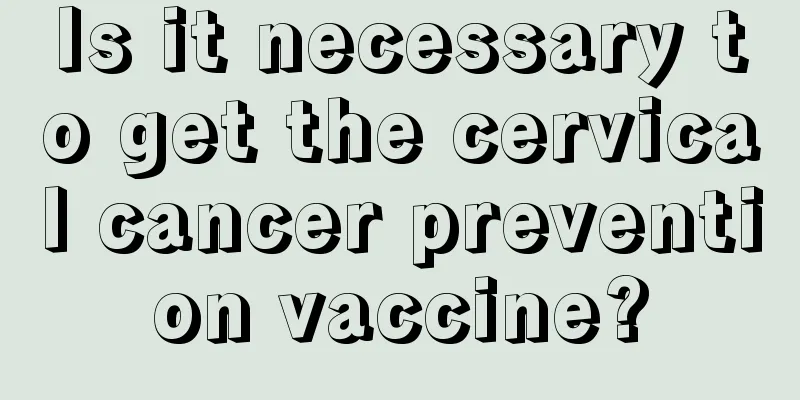Is it necessary to get the cervical cancer prevention vaccine?

|
HPV vaccine is necessary, especially for women aged 9-26, to effectively prevent high-risk HPV infection and reduce the incidence of cervical cancer. Vaccination is an important means of preventing cervical cancer, and combined with regular screening and a healthy lifestyle, it can further reduce the risk. 1. The role of HPV vaccine HPV vaccines are mainly targeted at human papillomavirus (HPV) infections, especially high-risk HPV types 16 and 18, which are associated with more than 70% of cervical cancer cases. The vaccine stimulates the immune system to produce antibodies to prevent HPV infection, thereby reducing the risk of cervical cancer. Currently, the common HPV vaccines on the market include bivalent, quadrivalent, and nine-valent vaccines, which cover slightly different virus types and applicable populations. 2. Applicable population for HPV vaccination The World Health Organization recommends that girls aged 9-14 be given priority for HPV vaccination because the immune response is stronger and more effective in this age group. Vaccination is also recommended for women under 26 years old. Even if they have sexual intercourse or have been infected with a certain HPV type, the vaccine can still prevent other uninfected virus types. HPV vaccination for men can also help reduce the spread of HPV and prevent related diseases such as genital warts and anal cancer. 3. Safety of HPV vaccines After years of clinical trials and practical applications, the safety of HPV vaccines has been widely recognized. Common adverse reactions include pain, redness, swelling, or mild fever at the injection site, which usually disappear on their own within a few days. Serious adverse reactions are extremely rare. Before vaccination, you can consult to find out whether your health condition is suitable for vaccination. 4. Other preventive measures In addition to vaccination, regular cervical cancer screening such as TCT and HPV testing is also an important measure to prevent cervical cancer. A healthy lifestyle, such as quitting smoking, eating a balanced diet, and enhancing immunity, can also reduce the risk of disease. Cervical cancer prevention vaccine is an effective means of preventing cervical cancer. It is recommended that people of appropriate age be vaccinated as early as possible. Combined with regular screening and health management, the risk of cervical cancer can be minimized. |
<<: What causes prostate cancer
>>: How long can you live with metastatic brain cancer
Recommend
The difference between Coriolus igniarius and Ganoderma lucidum
Coriolus versicolor and Ganoderma lucidum are bot...
What are the effects of arm scraping?
Gua Sha is a method of detoxification that has ex...
Which shampoo should I use to wash my hair if it is prone to hair loss
Hair loss is a very common phenomenon in normal t...
Earlobe becomes red, swollen and thickened after ear piercing
Girls all love beauty. When they see others weari...
How long can you live after surgery for mid-term liver cancer
How long can you live after surgery for mid-stage...
How to play Go
Go is a very traditional entertainment game with ...
Can pituitary tumors be completely cured
Pituitary tumors are common intracranial tumors t...
What is the pattern of changes in secretions after ovulation?
When a woman ovulates, she may not feel any react...
Effects and functions of vinegar and egg white
Vinegar and egg white put together have certain h...
The buttocks are sweaty and painful in summer
When summer comes, the air outside is hot. Couple...
How long can you live after prostate cancer surgery? Things to note after prostate cancer surgery
Many prostate cancer patients want to know how lo...
How to wash hair dye
How to wash off hair dye? If hair dye gets on clo...
What foods should you eat more to prevent liver cancer? Doing these things can easily prevent liver cancer
"Liver cancer has no symptoms in its early s...
What are the effects of soaking hawthorn in water?
Hawthorn is known for being rich in nutrients. Th...
9 good habits to make you fair and rosy
1. Your facial expression reflects your living co...









